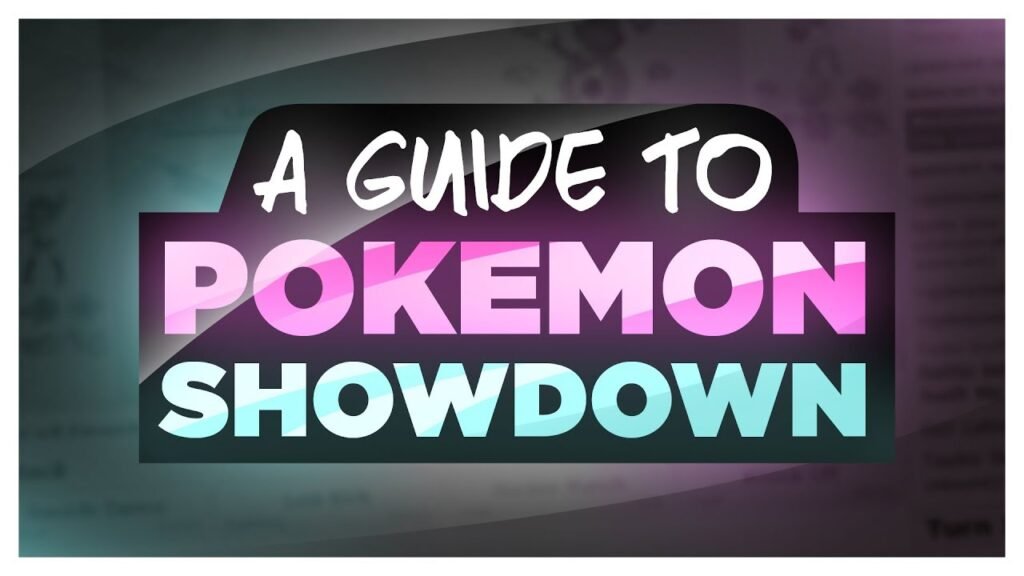In the ever-expanding universe of Pokémon, a game has emerged that captures the strategic depth and competitive spirit of the franchise without the need for handheld consoles or mobile devices. Pokémon Showdown is an online battle simulator that has garnered a massive following for its accessibility, depth, and adherence to the competitive rules set by the Pokémon series. This article delves into the intricacies of Pokémon Showdown, offering insights into its features, strategies, and the community that surrounds it.
The Genesis of Pokémon Showdown
Pokémon Showdown was created to fulfill the competitive Pokémon community’s need for an accessible, fair, and fast-paced platform for battles. Prior to its inception, players had to invest hundreds of hours in games to breed and train a competitive team, a task that was both time-consuming and daunting for newcomers. Pokémon Showdown revolutionized this by allowing players to build teams digitally, with any desired traits, and jump straight into battles. This not only leveled the playing field but also shifted the focus purely to strategy and skill.
Core Features and Gameplay Mechanics
At its heart, Pokémon Showdown is a battle simulator that allows players to engage in Pokémon battles online. It supports various battle formats, including but not limited to, the official formats recognized by The Pokémon Company for competitive play. Players can choose from Singles, Doubles, and even specific metagames like ‘Monotype’ or ‘Random Battles’, each offering a unique challenge and requiring different strategies.
One of the key features of Pokémon Showdown is its team builder. This tool allows players to construct teams from the ground up, selecting Pokémon, moves, abilities, and items to create a synergistic squad. The depth of strategy involved in team building is immense, with considerations for type matchups, roles (such as sweeper, tank, or support), and counter strategies against popular metagame threats.
The Competitive Scene and Community
Pokémon Showdown has a thriving competitive scene, supported by a dedicated community of players, strategists, and content creators. The platform hosts regular tournaments, including official Smogon University tournaments, which follow specific rules and tiers to ensure balanced and fair competition. These tiers, such as OU (OverUsed), UU (UnderUsed), and others, help categorize Pokémon based on their usage rates and effectiveness, fostering a dynamic and ever-evolving metagame.
The community aspect of Pokémon Showdown cannot be overstated. Forums and Discord servers teem with discussions on strategy, team building, and metagame analysis. This collaborative environment not only helps new players learn and grow but also pushes the boundaries of competitive play, with innovative strategies and team compositions constantly emerging.
Strategies and Tips for Success
Success in Pokémon Showdown requires a blend of strategic planning, adaptability, and in-depth knowledge of the Pokémon universe. Here are some tips for those looking to dive into the competitive scene:
- Learn the Metagame: Understanding the current metagame is crucial. Knowing which Pokémon are commonly used and what strategies are popular can help you prepare your team and anticipate your opponent’s moves.
- Team Synergy: Focus on building a team where the members complement each other’s weaknesses and strengths. Consider having a balance of types and roles to handle a variety of threats.
- Practice Makes Perfect: Use the ladder system to practice against a wide range of opponents and strategies. Each battle is a learning opportunity, even in defeat.
- Stay Informed: The metagame can shift with the introduction of new Pokémon, moves, or game mechanics. Stay active in the community and keep up with the latest trends and updates.
Challenges and Controversies
Like any competitive game, Pokémon Showdown has its share of challenges and controversies. The accuracy of its simulation has been questioned at times, though the developers work closely with the community to ensure it mirrors the official games as closely as possible. Additionally, balancing a game with hundreds of variables is an ongoing struggle, with periodic adjustments necessary to maintain competitive integrity.
Conclusion
Pokémon Showdown stands as a testament to the enduring appeal of the Pokémon series, offering a platform for rigorous competitive play and strategic depth that rivals the main series games. It democratizes the competitive aspect of Pokémon, removing barriers to entry and focusing on pure strategy. Whether you’re a seasoned veteran or a curious newcomer, Pokémon Showdown offers a challenging yet rewarding experience that captures the essence of what makes Pokémon battles so captivating. As the community grows and evolves, Pokémon Showdown will continue to be a pivotal arena for trainers worldwide to test their mettle, refine their strategies, and share their passion for Pokémon.
Frequently Asked Questions about Pokémon Showdown
Q1. Can I play Pokémon Showdown on my mobile device?
Yes, Pokémon Showdown is accessible on mobile devices through its website. The interface is optimized for mobile browsers, making it easy to play on the go.
Q2. Is Pokémon Showdown legal?
Pokémon Showdown operates in a legal gray area. It is not officially endorsed by Nintendo or The Pokémon Company but has not faced legal action and operates as a fan-made project that respects the intellectual property of the Pokémon franchise.
Q3. How does the ranking system work?
Pokémon Showdown uses an Elo-based ranking system. Players gain or lose points based on wins and losses, with the amount depending on the rank of the opponent. Higher ranks indicate more skilled players.

